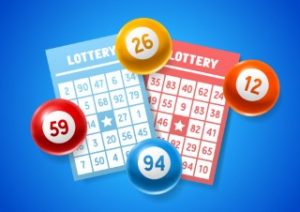So, lotteries! They’ve been around forever, haven’t they? This whole idea of tossing in a little bit of cash for the slim chance of suddenly having enough to buy that private island you’ve been eyeing. Whether it’s the big national ones or those that pop up online, the basic idea is pretty straightforward: you pay for a ticket, pick some numbers (or let the machine do it for you – no judgment here!). Let’s break down: how does a lottery work?
How does a Lottery Work?
When you strip it down, a lottery is just gambling with extra steps. You chip in a small amount of money for a ticket, hoping your chosen numbers will magically align with the ones that get picked. Part of all that ticket money gets funneled into a big jackpot fund. Lotteries come in all varieties, from headline-grabbing Powerball jackpots to smaller local draws. They all have their own quirks when it comes to prizes and how likely you are to actually win.
Getting Your Ticket and Joining the Fun:
At the end of the day, lotteries are businesses—ticket sales keep them running. You can usually grab a ticket from your local store or, these days, hop online and buy one without even changing out of your pajamas. You pick your lucky numbers or let the computer generate a random set for you – maybe those numbers will be the ones that finally let you tell your boss “I quit!” The price of a ticket and how often they have the drawings can vary. The big ones often do it weekly or twice a week to keep the excitement (and the ticket sales) going.
Speaking of online platforms, they’ve really shaken things up. Now you can buy a ticket from pretty much anywhere as long as you have an internet connection.Online lotteries are handy, but only if you’re playing on a safe and verified site. Nobody wants their personal information floating around like a losing lottery ticket in the wind. Plus, online lotteries often have a wider variety of games and special offers to try and tempt you.
The Big Moment
When it comes to the actual drawing, they use either fancy random number generators (basically, computers that spit out random numbers) or those cool-looking mechanical ball machines. This is all done under the watchful eyes of regulators to make sure no one’s trying to pull a fast one. They draw the winning numbers, and then everyone who bought a ticket gets to frantically check if they’re suddenly rich.
Prize Distribution:
The prize money is usually split into different tiers. The jackpot, which is the big prize, goes to whoever matches all the required numbers. But even if you don’t hit the jackpot, you can still win smaller prizes for matching some of the numbers. This gives more people a chance to win something, even if it’s just enough to buy another lottery ticket.
The Million-Dollar Question: What Are My Chances?
Okay, let’s be honest here. The odds of winning the lottery, especially the really big jackpots, are usually pretty long. The bigger the potential payout, the lower your chances of actually winning. Smaller, local lotteries might have slightly better odds, but the prizes are usually smaller too. It’s all about weighing the potential reward against the very real probability of not winning.
So, How Does a Lottery Work?
Basically, you buy a ticket with some numbers on it. Lottery people use computers to pick random winning numbers. If your numbers match, you win a prize. The money from ticket sales goes into the prize pool, and sometimes a bit goes to good causes and to keep the whole operation running.
In the end, lotteries continue to fascinate people because of that dream – that tiny chance of a massive win. Understanding how they actually work, from buying a ticket to the drawing and how the prizes are handed out, gives you a better picture of what you’re getting into. It’s all part of their enduring appeal and the role they play in our collective imagination.



























